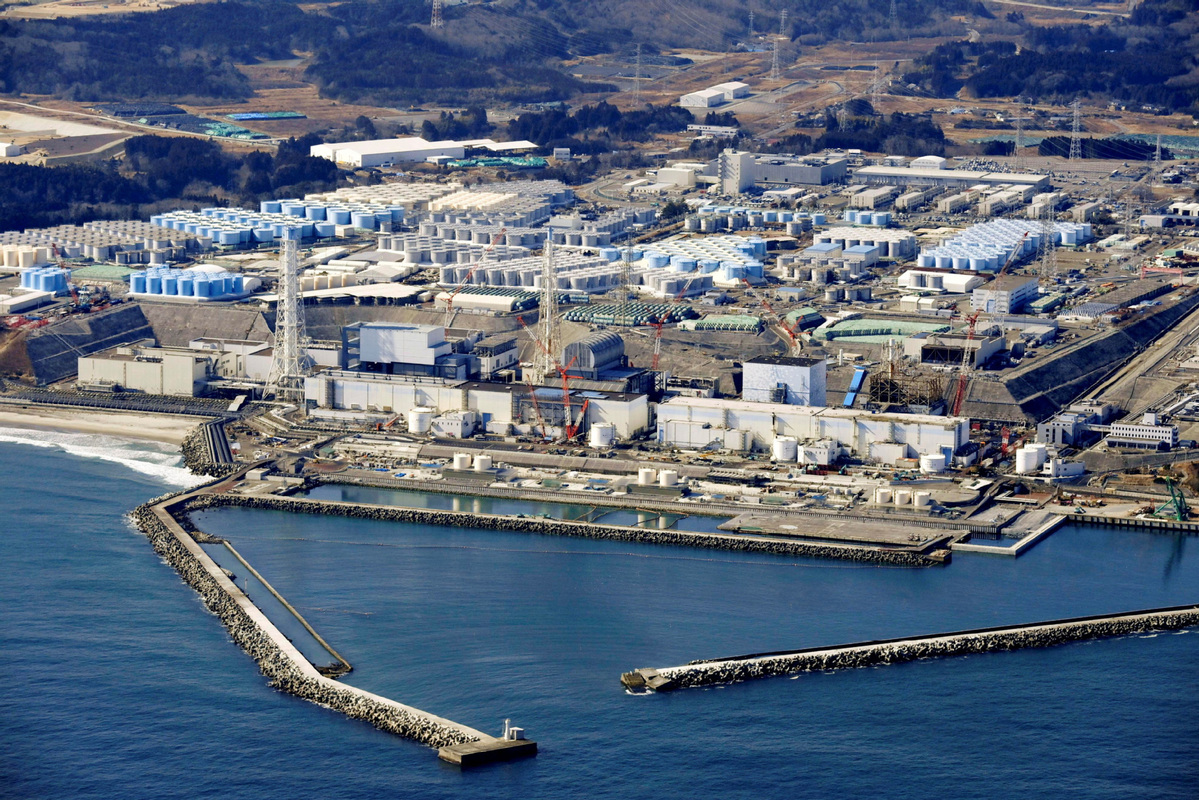China, UN eye Japan's radioactive water dump
By ZHANG YUNBI | China Daily | Updated: 2023-02-03 21:57

Both China and the United Nations have voiced serious concerns over Japan's plan to dump radioactive wastewater into the Pacific Ocean, amid widespread opposition, criticism and concerns from around the world.
Analysts said Japan should not shirk from its international obligations or gloss over the issue when dealing with the contaminated water discharge from Fukushima Daiichi nuclear power plant, which was severely damaged during a major earthquake in 2011.
In a phone conversation with Japanese Foreign Minister Yoshimasa Hayashi on Thursday, Chinese Foreign Minister Qin Gang said Japan is obliged to deal with the discharge issue by adopting "an open, transparent, scientific and safe approach".
Despite protests from scientists, fishery workers, coastal residents and Japan's neighbors, Tokyo announced last month that it would start dumping over a million tons of the radioactive water into the sea "during this spring or summer".
Beijing and the international community "hold serious concerns" against Japan's unilateral decision to discharge radioactive wastewater into the sea, Qin said.
Japan's discharge plan was also mentioned in a meeting between Qin and visiting President of the 77th session of the UN General Assembly Csaba Korosi on Thursday in Beijing.
As the two sides were exchanging views on international issues of common concern, they said they believe that "a responsible attitude should be held" to preserve the only planet that all of humanity cannot live without, according to the Chinese Foreign Ministry.
The Japanese government held an official briefing on Thursday in the earthquake-hit Fukushima prefecture regarding the discharge plan.
Some local Japanese officials attempted to downplay the negative impact of the discharge, noting that the plan was driven by a set schedule, and "it is unlikely to impact reconstruction there", according to Japanese news reports.
Wang Hanling, a senior research fellow on international law at the Chinese Academy of Social Sciences, said Japan should take preventive measures instead of discharging the wastewater as scientists around the world are so far unable to conclude how much and how far the wastewater will affect the marine environment and the planet at large.
Despite the uncertain long-term impact, "it is quite certain that the discharge will have a negative impact on the world's ecology, environment and health of mankind", Wang said. "Japan is obligated to minimize the damage."
US media quoted unnamed sources as saying last week that Japan and the Netherlands had agreed to join the United States in restricting exports of semiconductor manufacturing equipment to China.
Foreign Minister Qin said the economies of China and Japan rely on each other and benefit one another, and Japan is expected to act "with an eye on championing international trade rules and its long-term interests".
zhangyunbi@chinadaily.com.cn
























